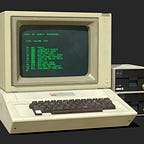Genki L3 Grammar
1) Verbs Polite(present past)and Dictionary forms
In Japanese there are two main type of verbs.
- Godan verb
- Ichidan verb
- Irregular verbs
Godan verb
These are the verbs which end with the sound of う- line of the hiragana chart. For example 聞く、話す、あらう、遊ぶ as you can see all of them ends with う- line of the respective hiragana column. They are called as dictionary form or unconguated form of the verb. They are also called as U- verbs
Polite form conjugation of Godan verbs
To make polite form conjugation of the Godan verb we need to move above to い-column of the hiragana chart and add -ます to the end of the verb. For example 聞きます、話します、飲みます
The Godan verb polite from changes with both tense and polarites(affirmative,negative forms). For example consider the verb 誘う(さそう)it will conjugate in tense, polarites(affirmative,negative forms) as
Ichidan verb
These are the verbs which ends with る and before る they always have a character with い or え sound of the hiragana. They are also called as Iru Eru verbs. For example 食べる、教える、見せる、閉める、開ける、始める.They are also called as Ru-verbs
Polite form conjugation of Ichidan verbs
The polite or ます form conjugation of Ichidan verb is cut off the る at the end and replace it with ます. For example.
- 閉める ー> 閉めます
- 開ける ー> 開けます
- 始める ー> 始めます
- 見せる ー> 見せます
- 覚える ー> 覚えます
Similar to Godan verb Ichidan verbs also conjugate with Tense and polarity
2) Particles
The nouns used in the sentence should be followed by a particle which represents the how the noun is related to the verb.
を Particle
The を particle is used to mark the direct object in a sentence. It is followed by a verb which is the action performed on the object or noun.
Example
- I will watch a movie today
- 僕は今日映画を見ます
- He is reading the newspaper now
- かれは今新聞(しんぶん)を読みます
- She writes a letter every month
- かのじょは毎月手紙(てがみ)を書きます
で Particle
The で particle is used to describe the location where a paritcular action takes place.
Example
- I will read books in library
- 図書館(としょかん)で本を読みます
- I will watch TV in my house tonight
- 今晩家でテレビを見ます
- I bought tickets from the ticket counter.
- 僕は切符売り場(きっぷうりば)で切符を買いました
The で particle is also used to narrow down a selection from a group of items.It is often used with 中で
Example
- Where is your favourite place in the world
- 世界の中で好きなどこるはどこですか
に particle
The に particle has several used the two most important one are
- Movement towards a Destination/Goal
- Time at which an event takes place
- To denote a location or a specific place
Example
Movement towards destination or goal
- I’m going to the school.
- 僕は学校に行きます
- I’m returning to my home this evening
- 私は今晩家に帰ります(かえります)
Time at which an event takes place
- We have a party on saturday
- 土曜日にパーティーがあります
- I usually go to bed on 10:00 PM
- 私はたいてい午後十時に寝ます(ねます)
- I will go to Mumbai on sunday
- 私は日曜日に ムンバイに行きます
- I eat dinner at restaurant at 8:00 PM everyday
- 私は毎日午後八時にレストランで晩ごはんを食べます
You do not use the particle に with (1) time expressions defined relative to the present moment, such as “today” and “tomorrow,” (2) expressions describing regular intervals, such as “every day”
Frequency Adverb
Some of the frequency adverbs are
- 毎日 — Everyday
- まい朝ーEvery morning
- よくー Often
- あまりー Not much
- ぜんぜんー Not at all
- いつも — Always
〜ませんか
We can use the verb stem of ます form with ませんか to extend an invitaion to someone.
Example
- Will you have lunch with me?
- 私とお昼ごはんを食べませんか
